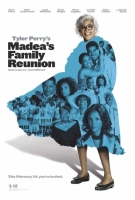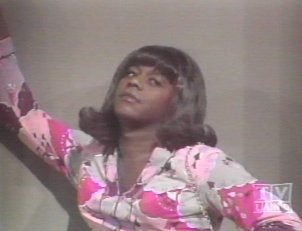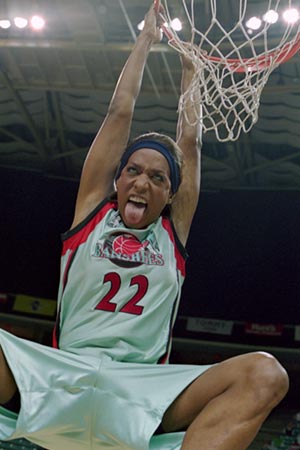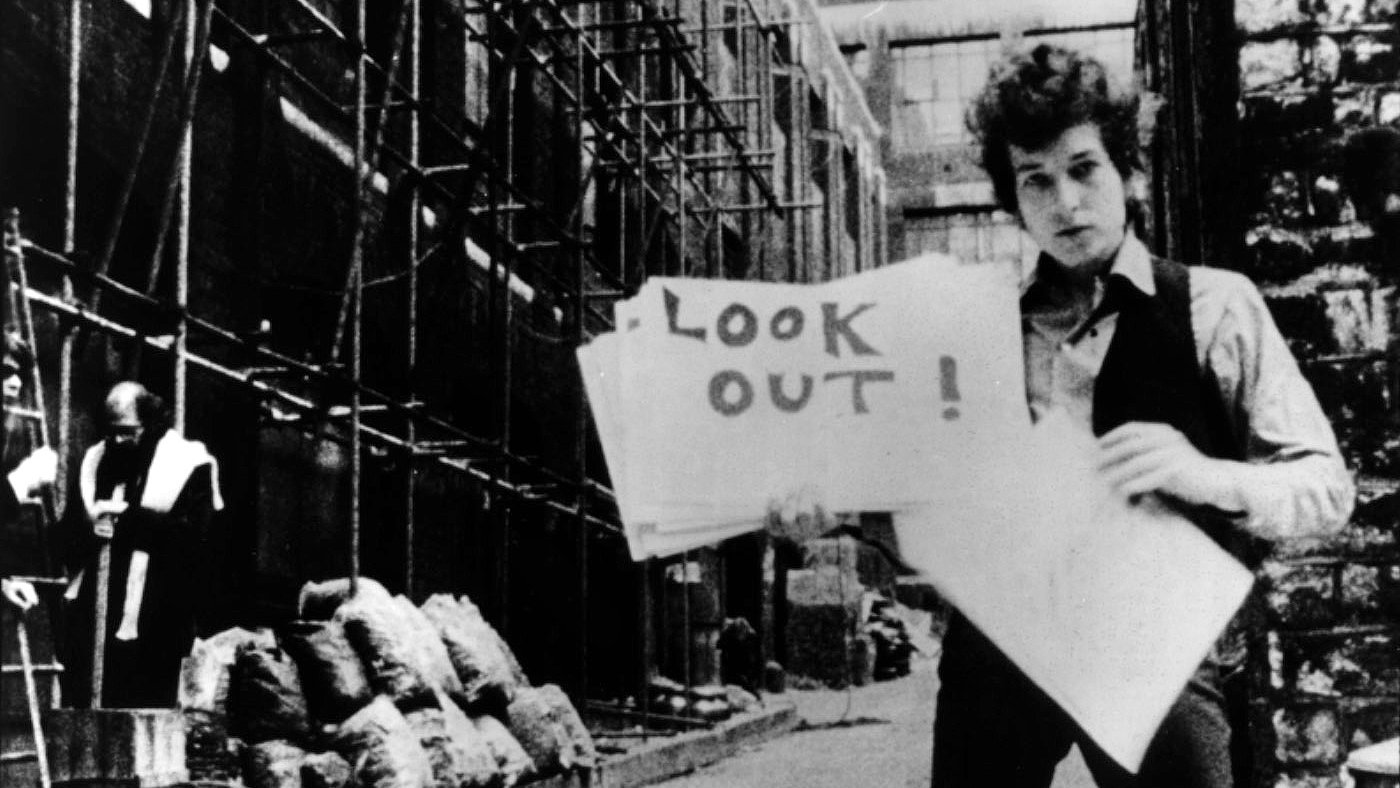So much has been written about DA Pennebaker's seminal 1967 documentary, Don't Look Back, it's…
What You See Is What You Get
 Can someone please explain when black men dressed in drag became so immensely popular?
Can someone please explain when black men dressed in drag became so immensely popular?
Tomorrow Madea’s Family Reunion hits the theaters, about a month before writer/director/star Tyler Perry’s first book Don’t Make a Black Woman Take Off Her Earrings hits the shelves.
Now, the theatrical practice of men dressing in drag is nothing new, of course. Guys have been doing it for comedic and sometimes dramatic effect for over a thousand years and many classic modern comedies involve cross-dressing men (Some Like It Hot, La Cage Aux Folles, and Tootsie come to mind).
 But it was Flip Wilson’s Geraldine who one was one of the first to add social commentary to the comedy of a man dressed as a woman. Wilson’s idea was to produce comedy that was race free and with Geraldine he managed to simultaneously skate the thin line between race, class, and gender during an era when positive portrayals of black women were difficult to find in the mass media. Geraldine’s smart and sassy one-liners, “What you see is what you get,” and, “When you’re hot, you’re hot,” quickly became national catch phrases.
But it was Flip Wilson’s Geraldine who one was one of the first to add social commentary to the comedy of a man dressed as a woman. Wilson’s idea was to produce comedy that was race free and with Geraldine he managed to simultaneously skate the thin line between race, class, and gender during an era when positive portrayals of black women were difficult to find in the mass media. Geraldine’s smart and sassy one-liners, “What you see is what you get,” and, “When you’re hot, you’re hot,” quickly became national catch phrases.
More recent filmic efforts in cross-dressing have avoided crossing the line into social commentary, however. In the past 6 years, Hollywood has released the following drag comedies starring black comedians:
- 2006 – Big Momma’s House 2 (Martin Lawrence)
- 2005 – Diary of a Mad Black Woman (Tyler Perry)
- 2004 – White Chicks (Shawn & Marlon Wayans)
- 2002 – Juwanna Mann (Miguel Nunez Jr.)
- 2000 – Big Momma’s House (Martin Lawrence)
NOTE: I’m ignoring Eddie Murphy’s Nutty Professor movies because the main premise of those movies was not Murphy dressed in drag but Murphy dressed in fat.
Not exactly biting cultural critiques, nor for that matter, Oscar nominees. But to date the above movies have combined to pull in over $300 million at the box office while costing only around $100 million to produce. So we know what this says about audiences, they like seeing black men dressed in drag.
 But what does this say about African American men? In order for them to get a laugh they have to start cross-dressing?
But what does this say about African American men? In order for them to get a laugh they have to start cross-dressing?
And what do these characters say about African American women? The best way for movies to portray black women is to show black men dressed as women?
While White Chicks was poking fun at high society, white bimbos, the other movies aren’t exactly portraying black women in a positive light. Grandma Madea is a foul-mouthed nutjob with a chainsaw. Big Momma is a foul-mouthed nutjob who can dunk.
Now, some would argue, at least these movies are step up from the negative stereotypes Hollywood generally wallows in – pimping, drug-dealing, rappers – but I’m not so sure. Aren’t these movies accomplishing the same thing?
Let’s stop for a minute and take a brief survey.
 Everyone who works with a foul-mouthed cross-dressing black man raise their hand.
Everyone who works with a foul-mouthed cross-dressing black man raise their hand.
And, everyone who’s neighbors are drug-dealing rappers?
So why are the African Americans we work with, who are our friends and neighbors so conspicuously missing from Hollywood movies?
Is it because there are no new ideas in Hollywood? After all, this past holiday season saw the release of Yours, Mine and Ours (remake), Fun With Dick and Jane (remake), and Cheaper by the Dozen 2 (sequel to a remake). If you wanna pitch something in Tinseltown, take the easy way out. Take an old idea and recast it for a different audience.
What if we did Back to School except from the African American perspective?
Never mind.
Flip Wilson (not as Geraldine) once said, “Being your own man does not mean taking advantage of anyone else.”
So are there any principled men left in Hollywood? Or is what we see what we get?
UpdateFebruary 23rd, 2006
Madea Takes Manhattan has gotta be in the works after this weekend.
Comments (1)
Comments are closed.


[…] Géraldine Age 32 ans Taille 170cm Poids 54kg Mensurations 200 x 297 – 20.4 Kb – jpeg http://www.biosstars.com http://www.biosstars.com/casting/2002/Geraldine.htm View image alone – Go to site […]